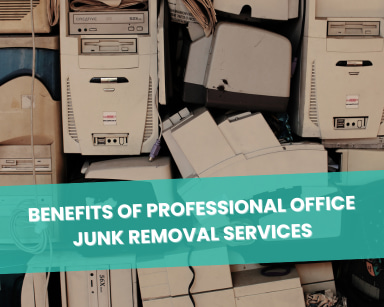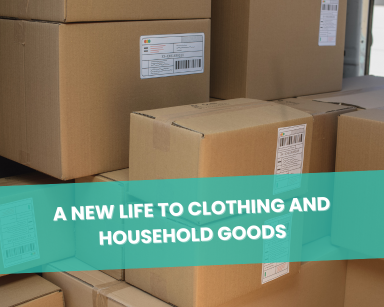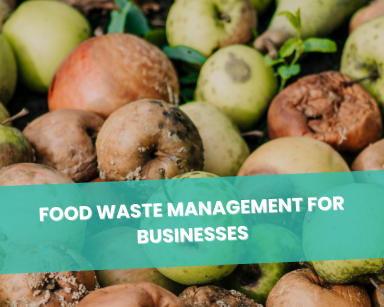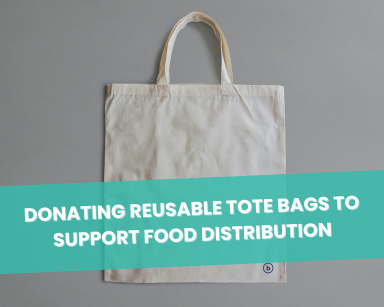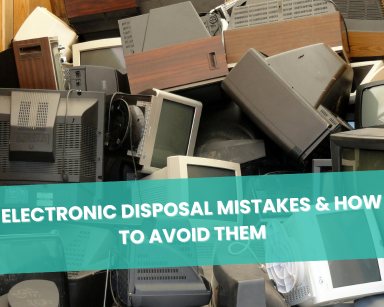How Does Recycling Save Energy for Future Generations – A Guide
Conservative waste management is the strategy to follow since it entails avoiding the generation of waste. To manufacture a new product, the energy consumed and raw materials used are extremely steep, and in the process, emissions affect climate change. Recycling assists us in dealing with this problem by reducing the amount of energy, among other resources, required to extract and process raw materials.
How does recycling save energy?
There are obvious benefits gained by recycling materials such as aluminum and paper, as the amounts of energy required to produce these products are considerably lower than those required to manufacture them from scratch.
This not only reduces the bills that consumers are charged but also ensures that future generations can utilize natural resources.
This is an informative guide that offers tangible tips to those who seek to enhance their understanding of sustainability and address the practical challenges they face.
Table of Contents
What Recycling Is and Why It Matters
Recycling means the conversion of products that have been used once, like paper, plastics, metals, and glasses, and re-processing them into new products again.
It is significant because it cuts down the extent of waste that is dumped in landfills and takes ages to disintegrate.
It also reduces the rates at which natural resources such as timber are harnessed from the natural environment since reusable materials are utilized in the process.
How does recycling save energy? This question needs the following answer.
Reusing materials reduces resource processing needs and lowers greenhouse gas emissions.
The Energy-Intensive Nature of Production Processes
The process of producing new materials starting with raw resources requires the usage of energy, which in turn is damaging to the environment.
It consists of the extraction of raw materials, processing, and manufacturing, where all these stages require very high levels of energy and emit greenhouse gasses. Knowing how does recycling save energy helps us see the benefits of reducing these processes.
Energy Consumption in Production
The creation of new products from raw components typically requires significant energy consumption.
This consequently pegs down the energy consumption as there are several steps in the whole process.
Here’s how it typically works:
- Extraction: The concentration and production of products such as aluminum, steel, and plastics in industries necessitate the use of heavy equipment and energy.
- Processing: These raw materials needed in production require further processing once they have been extracted. This involves processes such as crushing, smelting, and refining, all of which are well-known to require significant energy.
- Manufacturing: Lastly, the raw materials undergo further processing to become actual products, and these processes involve the use of energy and heat.
How does recycling save energy? By using recycled materials, we reduce the need for energy-intensive extraction, processing, & manufacturing of raw materials.
How Recycling Reduces Energy Use
To know In a bit more depth of how recycling saves energy. These are the details.
Recycling can also be said to be a very effective method of energy saving especially due to reduction of raw materials that must be extracted prior to use. The utilization not only preserves resource usage, but also reduces energy consumption to the greatest extent possible.
Aluminum
Restraining and recycling aluminum saves vast amounts of energy compared to producing new aluminum from bauxite.
These steps are eliminated in the case of recycling, which, in turn, saves a lot of energy. Instead of recycling, beneficial reuse is utilized widely at Happen Ventures for several products such as the aluminum products because of the firm’s specialty in the beneficial reuse of economically recoverable materials.
Recycling aluminum from cars and electric devices reduces environmental impact and saves energy.
Paper
To produce new paper from pieces of wood, raw material for pulping involves large energy in pulping, bleaching and processing. Recycling paper does not involve such energy intensive steps and therefore saves energy, thus being environmentally friendly.
Happen Ventures works with businesses so as to reuse paper goods with work, office, book papers, and school materials. These paper raw materials can be recycled in their use and this enables the conservation of energy, as well as decreased use of other raw materials.
It assures that our paper wastes are reduced to a minimal level while causing a positive impact to our environment.
Well, one way how does recycling save energy is by reducing the amount of production of materials and objects, which also means less raw material to be processed, another way recycling is credited for saving energy is by consuming less natural resources.
Preserving Resources for Future Generations
This is the reason why every effort is being made to preserve scarce resources for future generations so that they can benefit from them just like the current generation.
Recycling enhances the great protection of essential natural resources like forests, water, and minerals in the world.
Here’s how recycling helps
Forest Conservation:
Recycling paper reduces the need to harvest new wood. Without recycling, 80% more wood would need to be harvested to meet paper demand. With active recycling, only 20% more wood is needed.
Water Conservation:
The recycling of scrap steel and its use instead of virgin ores in preparing new steel involves the use of 40 percent less water. This reduces our usage of water from scarce water sources. Using paper and metals as recycled materials decreases water usage compared to raw materials.
Mineral Conservation:
Recycling helps in conserving some mineral deposits that would otherwise be mined to manufacture new products. Recycling aluminum uses only 5% of the energy needed to produce new aluminum from the metal’s ores.
Energy Conservation:
Recycling materials saves substantial energy in production processes. Recycled aluminum saves 95% of the energy, recycled steel saves 60%, recycled plastic saves 70%, and recycled glass saves 40% compared to using raw materials. Understanding how does recycling save energy is crucial for recognizing these benefits.
Reducing Environmental Impact:
Recycling avoids the generation of GHG emissions linked to activities involved in creating new products.
How does recycling save energy? Reusing materials cuts energy use, reduces greenhouse gas emissions, and promotes a sustainable future.
For more detailed statistics and information, you can visit the NIH Environmental Management System.
Practical Steps and Tips for Effective Recycling
Recycling conserves energy by eliminating the need to process virgin materials, manufacture products from scratch, and transport them.
Regular and proper recycling will be easy if you follow some practical steps below:
- Proper Sorting: Place different forms of waste to be recycled in separate baskets to ensure they are recycled differently for instance; paper, plastic, and metals baskets. It would be useful to mark each bin in a clear and concise manner so that accidently they do not get mixed up.
- Reducing Contamination: Before discarding the containers in the bin, make sure that the remnants of the food are washed within the bin. The food left on the plates and other items can potentially stick to the recyclables, thus lowering its value or even eliminating the possibility of its use.
- Supporting Local Recycling Programs: Engage in activities organized by your locality concerning the recycling of materials and be acquainted with the rules governing the initiative.
- Recycling Electronics: Identify localized electronics recycling programs that will properly manage disposal of redundant gadgets. A host of electronics have components that should not be discarded in the ordinary trash bin.
By implementing these best practices, we ensure that recycling processes are efficient and effective. The answer to “how does recycling save energy” is well explained.
Beneficial Reuse as an Alternative to Recycling
The key difference between recycling and beneficial reuse is that whilst recycling entails the process of obtaining new goods and services by subjecting the existing ones to further processing, beneficial reuse refers to the utilization of items in their existing states.
Beneficial reuse programs involve stock management, where organizations identify items for disposal in eco-friendly ways, avoiding landfill.
Then, within the community networks further opportunities are sought for these items in order to get another chance.
Fast delivery ensures goods reach centers quickly, avoiding accumulation and high handling costs. Organizations save on disposal costs and benefit from tax claims on donations.
Beneficial reuse provides a strategic approach to waste management while addressing the critical question: how does recycling save energy?
The Bottom Line
Recycling is essential for conserving energy & preserving natural resources for future generations. Recycling cuts energy use by reducing the need for energy-intensive production, supporting sustainability with proper sorting and contamination reduction practices.
How does recycling save energy? reducing the extraction of raw materials and the modern industrial processing of resources, consequently decreasing greenhouse gas emissions.
To provide a clearer perspective, it’s worth presenting beneficial reuse as a business model applied by Happen Ventures. This approach is a more efficient way to recycle staple items compared to conventional recycling.
It’s time for a fresh start and to stand up for our planet. Using recycling and beneficial reuse practices, we can all make the world a better place. sitemap



